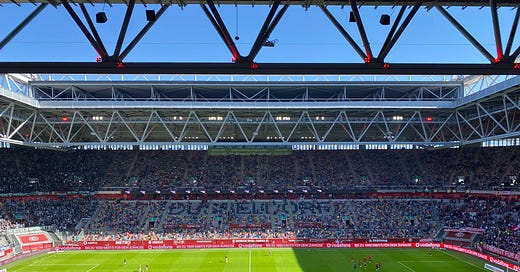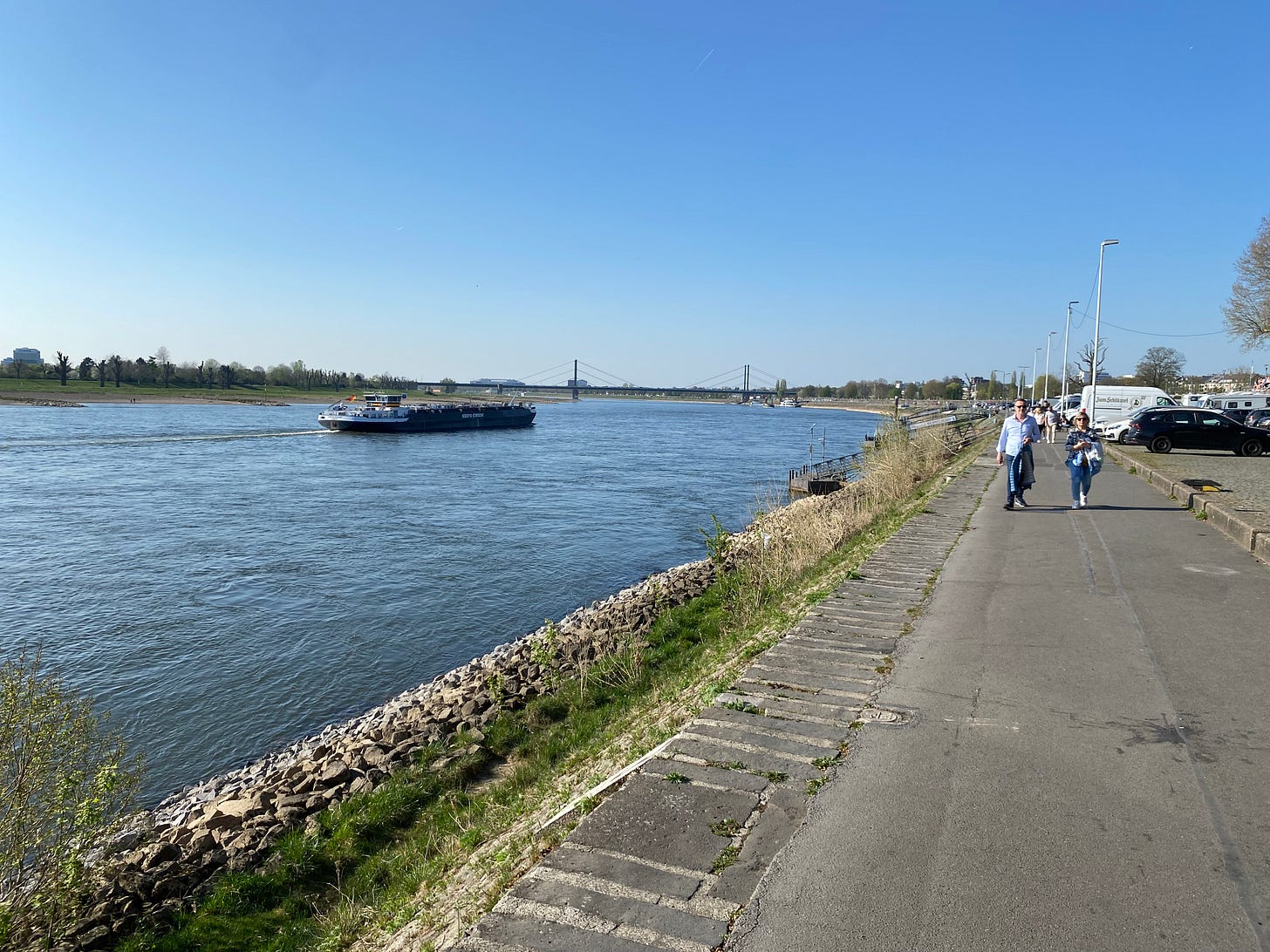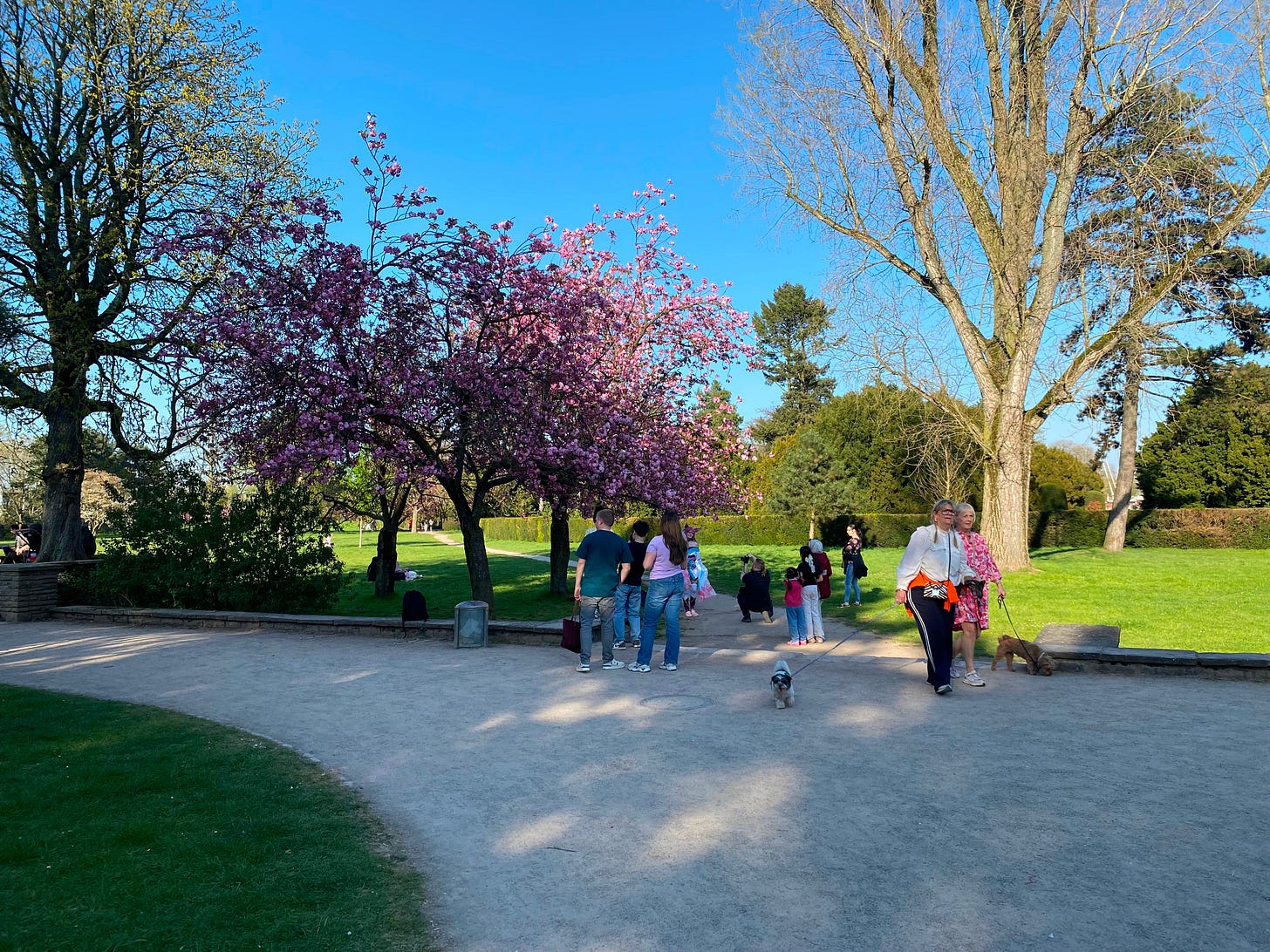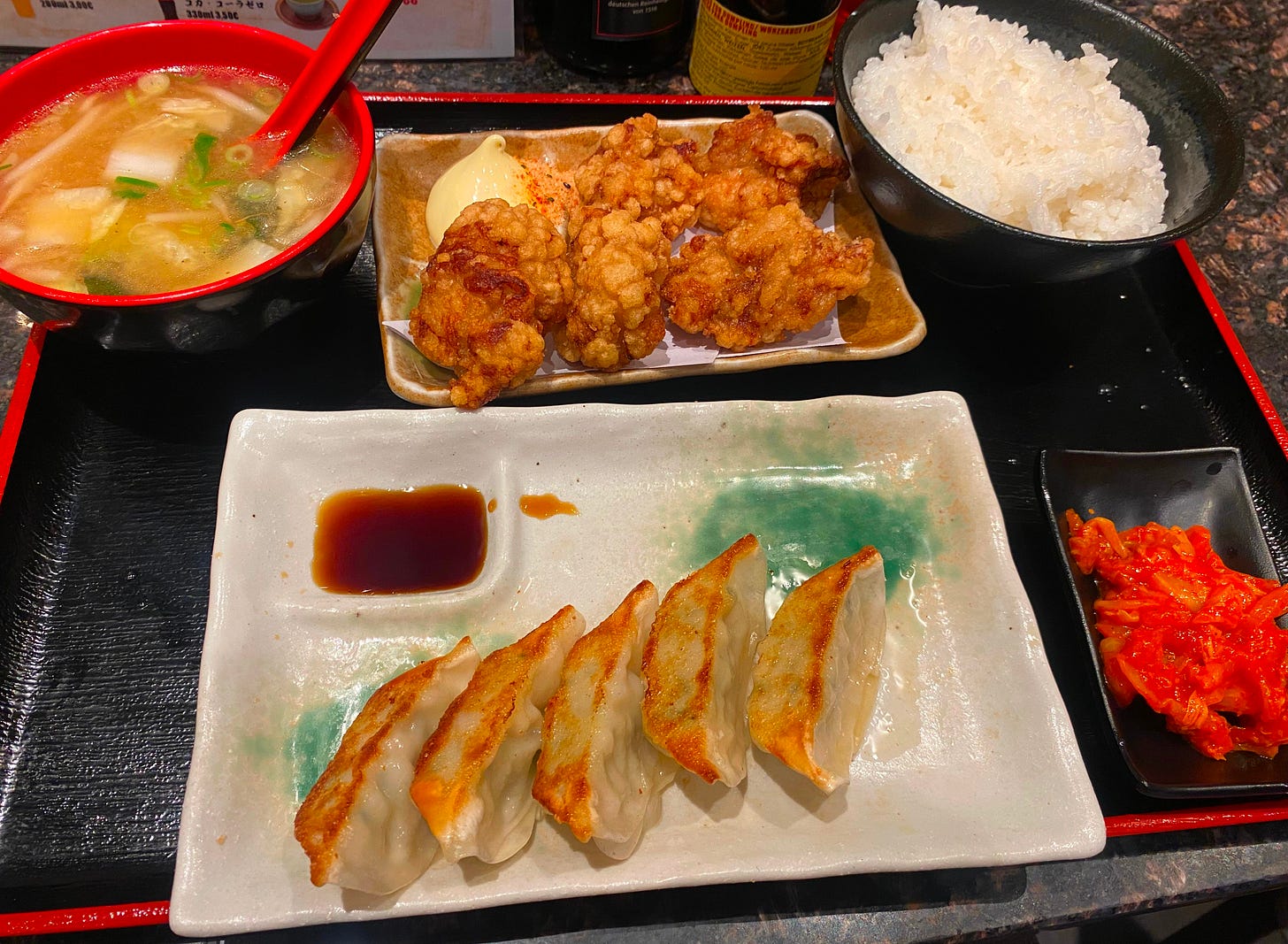Fortuna Düsseldorf [A]
Free football, altbier and glorious sunshine on the Rhine. What more could you want?
It’s the first properly sunny Friday afternoon of the year in Germany. I find myself cycling along the banks of the Rhine, having taken a long stroll in the opposite direction to visit Düsseldorf’s Japanese Garden.
In both directions I pass Vitamin D-deprived locals sunning themselves in the park, drinking beers, catching up with mates, walking the dog and just living.
For a brief moment a novel thought crossed my mind. For all my travels across this vast country, I’ve never really thought about leaving Berlin and settling in a different city. Düsseldorf caught me by surprise. Could I live here? Quite easily.
Maybe it was the sun playing tricks on the mind. After all, Berlin can be relentlessly grey in the winter months. Concrete blends into the sky. Canal side cafes and bars which spring into life with the blossom can feel crowded in the cold, in stark contrast to the vast expanse of quiet streets and empty parks in the frigid air. Maybe if I’d stayed in Berlin that weekend I’d have a renewed sense of belonging in the Haupstadt. Or maybe I’m just finding reasons to ignore the pull of this charming town.
Düsseldorf is a thriving centre of business. As the capital of Germany’s most populous state, North-Rhine-Westphalia, it’s a natural residence for international business. Creative industries play a role here too. The city is Germany’s capital of fashion and, with its rival Köln just a few kilometres up the road, is situated near the country’s leading media and broadcasting companies.
In an economy that is struggling with deindustrialisation and falling living standards, this corner of Germany still carves out a clear value proposition.
Fortuna Düsseldorf is leveraging that identity to make a claim for itself too. The club has embarked on a novel project, making four of its home games per season completely free to attend for all, whether they’re a member or a blow-in. Suitably named ‘Fortuna für Alle’, the scheme is now in its second season, and by most accounts, has been a success. Attendances are up, the team came within a hare’s breath of returning to the Bundesliga last season, and there’s a buzz around the place. Enough of a buzz that I was sent to cover their latest free game against Preußen Münster for Mundial Magazine (I won’t go into too much detail about the scheme here, I’ll let you all know when my article on the scheme goes live). Instead, this piece will be focused on my experience of the city.
My journey takes a familiar path. The train line that cuts through Germany from East to West has become something of a regular trip for me over the past couple of years. After all, North-Rhine-Westphalia is home to some of the biggest football clubs in the land. This time, I stayed on for a few extra stops, passing through Dortmund and on to Düsseldorf.
Upon arrival I took a quick trip through Little Tokyo. Düsseldorf is home to roughly 10,000 people of Japanese descent, the largest concentration of immigrants from the country in Germany. Manga shops with lengthy queues, mochi and ramen restaurants straddle Immermanstraße and the surrounding side roads. While I don’t know my Naruto from my Bleach, I spend an hour or so browsing the shelves. Teenagers of all backgrounds excitedly flick through the pages of graphic novels and discuss their collections in hushed tones.
After dropping off my bag, I head for the Aldstadt. The Old Town is made up of the typical narrow streets and cobbled paths you’d find in most European cities. Traditional breweries, serving the local drop, are already well populated with stag dos, young professionals and day trippers. Altbier is a traditional fare brewed in and around the city. Characterised by its copper colour and fruity taste, the beer is fermented at a moderate temperature using a top-fermented yeast. I make a mental note of the smaller serving sizes, usually around 200ml, which is similar to Kolsch, the signature beer of Köln. As is often the case in Germany, the inter-city rivalry is somewhat based on the small differences of their drinking culture. I make a note of the most appealing bar for later, and head for the river.
The Rhine cuts through Düsseldorf. Today, the old girl is glistening, diamond-like shards of light refracting off the calm waters. It seems like the whole city has decamped to the shores of the river, flying kites, drinking Aperol Spritz and soaking up the sun. A few fans are already sporting club colours. The most organised supporters have already copped the club’s latest special kit, a blue and white number inspired by the ‘Daruma’, a doll which symbolises perseverance and good luck in Japanese culture.
After an hour’s walk I came upon the Japanese Garden. A cosplayer is taking advantage of the blossoms for a photo shoot, while families are setting up for late-afternoon picnics.
The decision to cycle back to town is predicated on the notion of getting an Altbier down me before the sun starts to drop. Most of the al fresco bars are so densely populated that I struggle to find a suitable watering hole, but before long I’m perched on a balcony overlooking the water with a local drop in hand. To my taste, Altbier sits somewhere between a lager and an IPA in flavour. And, if we’re keeping score, it beats Kolsch hands down. Sorry Köln.
After a brief stop at a brewery for two more stubby libations, I head back to Little Tokyo and join the queue at Takumi. This restaurant is an official partner of Fortuna. What that means in practice I don’t know, but what I do know is that this place makes some banging gyoza. I ordered a plate with those beautiful little dumplings, chicken karaage, sticky rice, kimchi and a bowl of miso soup. Only having to part with €15 for the privilege, I am a happy customer.
The next day is centred around the game. I wind my way north again, speaking to fans about the free ticket scheme and soaking in the sun before an early afternoon kickoff.
Once I get to the ground, I continue my life’s great project: eating a wurst at every football ground in the top three divisions of German football. For a more in-depth review of the snag (€5.10), head over to my league table. If I don’t win a Pulitzer for this pursuit then journalism really is dead.
My condensed thoughts on the game? The Mekur-Spiel-Arena is an impressive venue that deserves a higher standard of football. Both sets of fans are in great spirits. Düsseldorf are the better team, and survive a late red to eke out a 1-0 win. For fear of angering my editors, I can’t reveal much more, but if you’re considering a ground hopping trip to watch Fortuna, I’d thoroughly recommend it.
I could spend my remaining hours in the town flittering about on public transport to see as much of it as possible, but instead I take a leaf out of the locals’ book, and head back to the river. I sip on a coffee, finish a novel (Sally Rooney’s Oh Beautiful World, Where Are You? It’s here Sally, on the banks of the Rhine) and nip back into the Aldstat to tuck into a kebab. This particular dürüm came from Lukas Podolski’s chain. A little bit expensive at €8.90 (Olaf Scholz, what have you done to this economy?!) but pleasant enough.
While waiting for my train, I came across more cosplayers on the platform. Mingled among the red and white scarves of football fans, the contrast of these B-Tech Sailor Moons provide a neat little snapshot of Düsseldorf as a city. Diverse, vibrant, and above all else, at ease with itself. I’ll definitely be back.









Big fan of Düsseldorf, yet annoyingly haven’t managed to make it to Fortuna yet. Did do a Friday night at TuRu Düsseldorf though!
Another great read, Mr Ritchie. Danke schon.